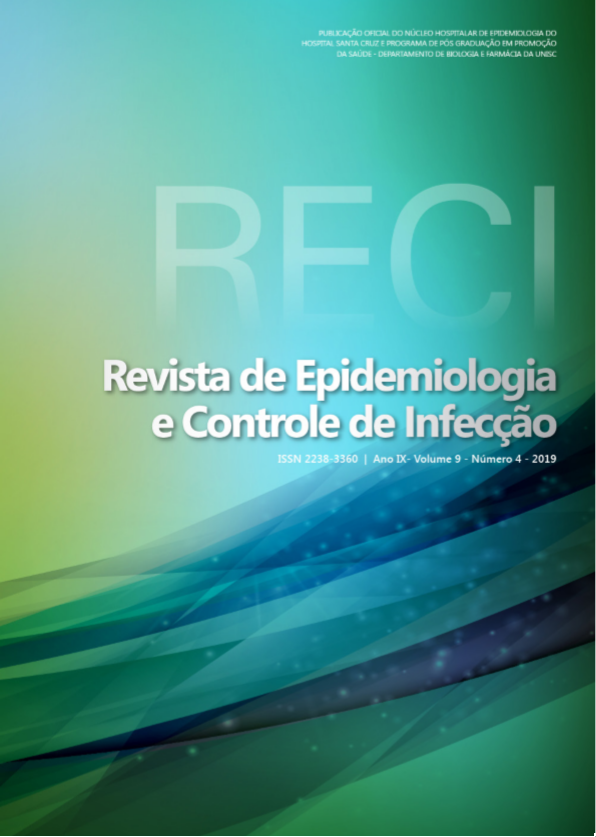Phenotypical profile of colistin and tigecycline resistance in a public hospital in Brazil
DOI:
https://doi.org/10.17058/.v9i4.13345Keywords:
Drug Resistance. Colistin. Healthcare-associated Infections. Enterobacteriaceae. Carbapenems.Abstract
Background and objectives: Healthcare-associated Infections (HAI) caused by multidrugresistant Gram-negative bacteria (MDR-GNB) are considered a public health problem and influence mortality rates in Intensive Care Units (ICU). The aim of this study was to verify the phenotypic profile of colistin and tigecycline, considered the last antimicrobial choice to treat MDR-GNB infections. Methods: Data were collected on the active search records of the infection prevention and control services and medical records of patients admitted to two ICU at a public hospital in Joinville, Brazil, between January 2016 and June 2017. Results: There were 256 HAI caused by GNB, mainly affecting males (62%), with 65 years as the median age. Among GNBs, 37% expressed MDR; the most frequent species were: Klebsiella pneumoniae (47%), Acinetobacter baumannii (23%) and Stenotrophomonas maltophilia (11%). MDR-GNB resistance to colistin and tigecycline was 5% and 12%, respectively; 5% of isolates were resistant to both antibiotics. Death rate among patients with HAI caused by colistin-resistant MDR-GNB was higher (60%) than those to tigecycline (45%). Conclusion: Colistin and tigecycline-resistant carbapenemase-producing K. pneumoniae and A. baumannii, prevailed among MDR-GNB, and were associated with most deaths. These observations, alongside the high use of carbapenems in empirical therapy, show the need for rational use of antimicrobials.Downloads
Downloads
Published
How to Cite
Issue
Section
License
The author must state that the paper is original (has not been published previously), not infringing any copyright or other ownership right involving third parties. Once the paper is submitted, the Journal reserves the right to make normative changes, such as spelling and grammar, in order to maintain the language standard, but respecting the author’s style. The published papers become ownership of RECI, considering that all the opinions expressed by the authors are their responsibility. Because we are an open access journal, we allow free use of articles in educational and scientific applications provided the source is cited under the Creative Commons CC-BY license.


